キーワード:医療マネジメント、サービス科学、患者満足、数理最適化
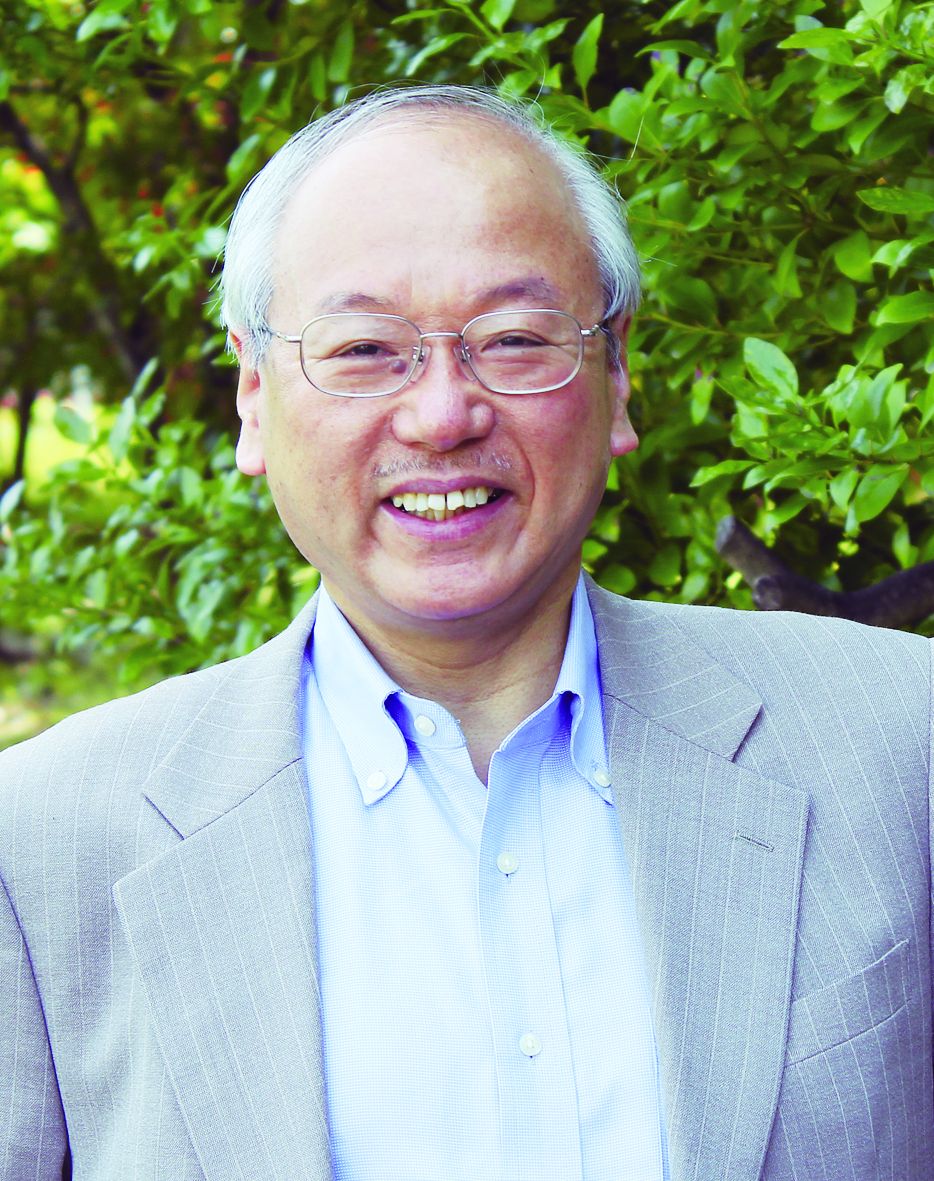 サービス産業が社会経済の7割を支える現代、そのサービス業の従事者と顧客の織りなす複雑な「人の活動」を、科学的アプローチで読み解こうとしているのが、このリサーチユニットです。サービス産業における生産性向上の方法を科学的に研究することは、国の経済発展に貢献するだけでなく、人々の生活の質(Quality of Life, QOL)の向上にもつながります。これは、膨大な情報を収集・蓄積・処理できる技術と、それを適切に解析する知識が集積して初めて可能になった21世紀の科学です。
サービス産業が社会経済の7割を支える現代、そのサービス業の従事者と顧客の織りなす複雑な「人の活動」を、科学的アプローチで読み解こうとしているのが、このリサーチユニットです。サービス産業における生産性向上の方法を科学的に研究することは、国の経済発展に貢献するだけでなく、人々の生活の質(Quality of Life, QOL)の向上にもつながります。これは、膨大な情報を収集・蓄積・処理できる技術と、それを適切に解析する知識が集積して初めて可能になった21世紀の科学です。
医療サービスのイノベーション
病院の経営には、財務や施設の管理、患者の診療情報、病院スタッフの勤務状況などの膨大な情報に加え、関係するすべての人の満足度といった非常に複雑な変数を考慮しなければなりません。私たちは、診療や臨床研究に関わることはできませんが、複雑な医療サービスをシステム科学的に理解し、システムのカイゼンと最適化に貢献したいと思っています(図1、2)。例えば、患者が入院する病床は、その患者が受診している診療科や大部屋・個室の希望など様々な情報に基づいて決定されます。現在、筑波大学附属病院においては、病床の決定は多くの人手と時間をかけて行われているのですが、私たちは数理最適化技術を活用して、病床割当てを半自動化することを試みています。これにより、医師や看護師は病床管理の手間が軽減し、本来の診療や看護業務に専念できる時間が増え、患者にとっても満足のできる病床管理が実現できます。このシステムは、視覚的で使いやすいタブレット上のソフトとして開発されています(図3)。
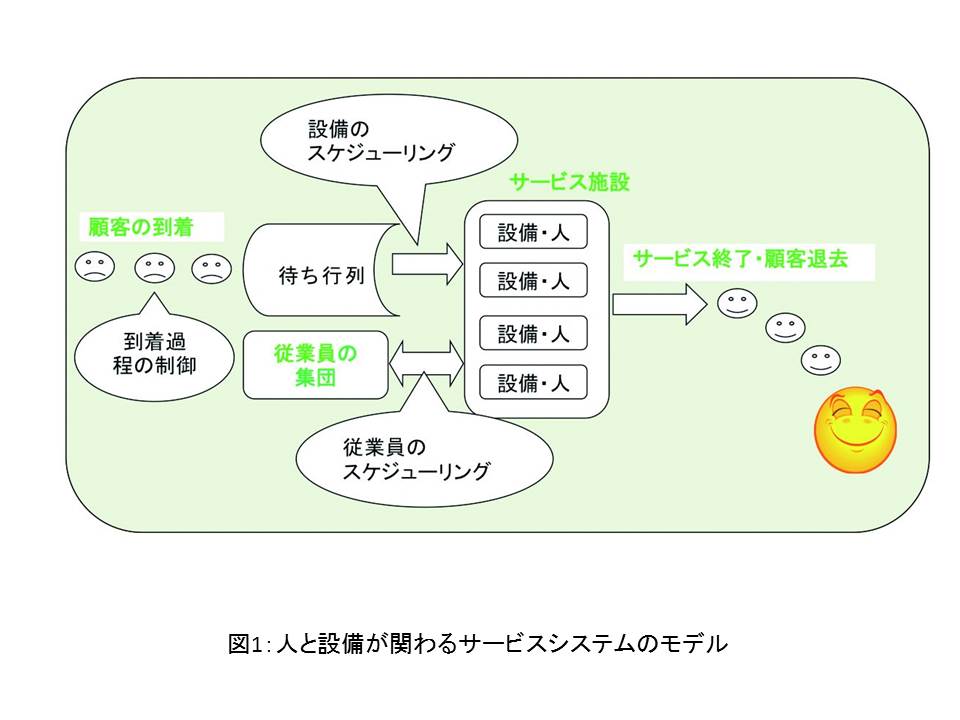
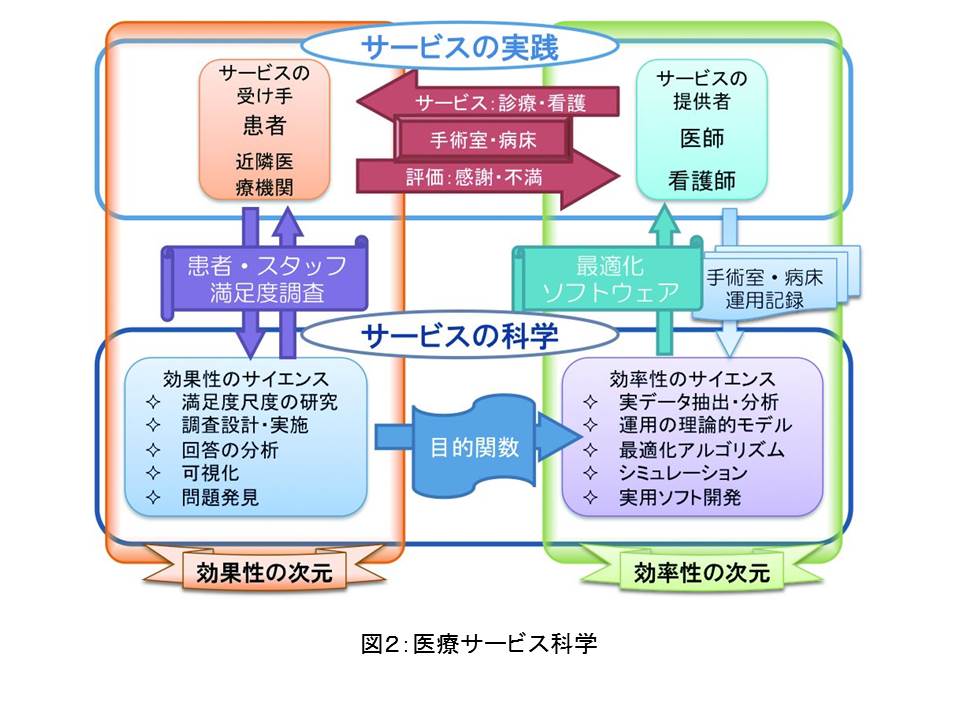
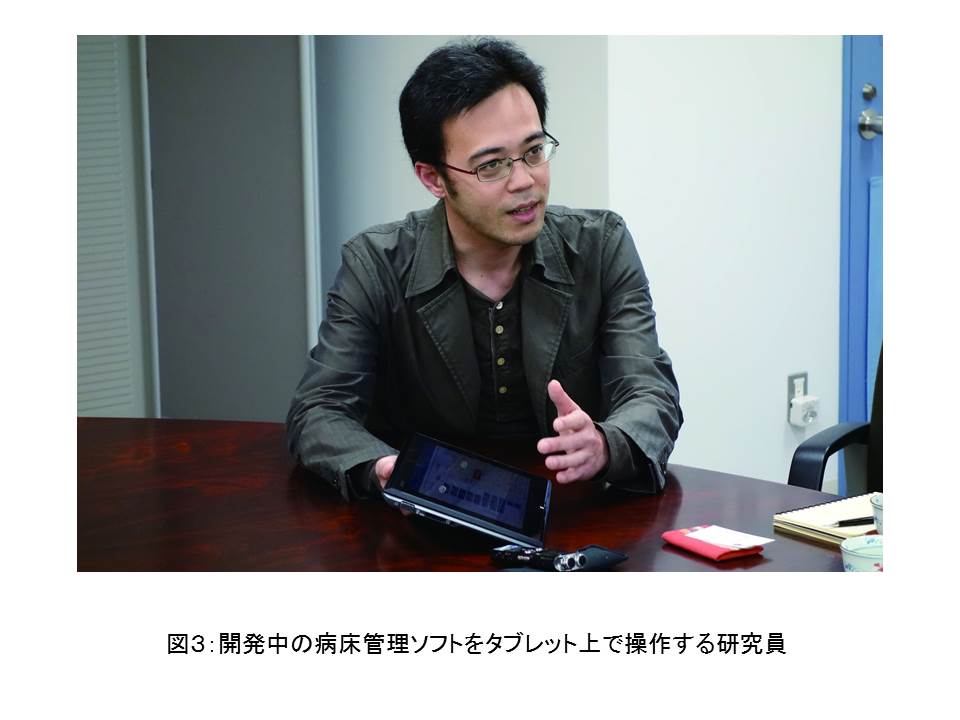
サービス経営のイノベーションで、生産性と、人々の生活の質を向上させる
私たちが開発している病床管理システムは、経営学・数理科学・ITの知識を融合させた実証的研究から生み出されています。このように、今までに無かった科学的手法をサービス産業に導入することで、数理的に効率性が追及でき、さらに論理的な解析を通して、勘や経験ではなく数値として公平な改善点が発見できるようになります。生産性だけではなく、サービスの提供者と受け手双方の満足度も含めて検証することで、人々の生活の質の向上に寄与していきたいと考えています。
社会への貢献・実績
●経営学と数理・情報科学の融合により、経営システムの質と効率を向上させる先進的事例の実現
●我が国では遅れている医療マネジメント分野におけるイノベーション
●国際学会や国内研究集会における成果発表。地域のサービス業者を対象とする公開講座「サービスカイゼン研修コース」と、附属病院との共催で「医療サービス管理ワークショップ」を開催(図4)
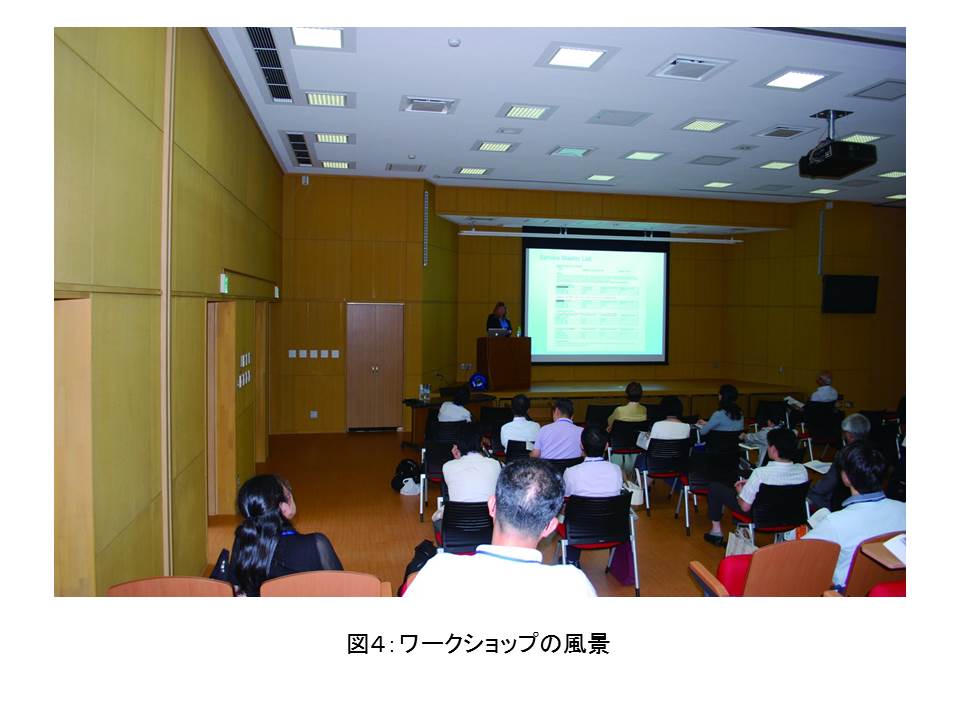
(取材:平成25年5月9日)
Innovating the Medical Service by Combining Mathematical and Management Sciences
Key words:medical management, service science, patient satisfaction, mathematical optimization
Now that the service sector accounts for 70% of each nation’s social economy, this research unit aims to clarify the complex activities of people engaged in the service industry, including employees and customers, through scientific approaches. The scientific investigation of methods to improve productivity in the service industry should contribute to not only national economic development, but also the  improvement of people’s quality of life (QOL). This is a science of the 21st century based on the technologies to collect, accumulate, and manage a huge amount of data as well as the knowledge to analyze them appropriately.
improvement of people’s quality of life (QOL). This is a science of the 21st century based on the technologies to collect, accumulate, and manage a huge amount of data as well as the knowledge to analyze them appropriately.
Innovation of Medical Service
In hospital management, it is necessary to consider very complex variables such as the satisfaction levels of all those involved in addition to a huge amount of data regarding financial and facility management, patient treatment, and hospital staff’s working conditions. Although we are not involved in medical treatment and clinical research, we aim to contribute to the system improvement and optimization by scientifically examining these data (Figures 1 and 2).


For example, patient rooms are allocated in consideration of various factors such as the relevant clinical department and requested room type (standard/private). Currently, in the University of Tsukuba Hospital, a manual room allocation procedure is being implemented, taking much time and effort. We are considering the semi-automation of this procedure, using technology for mathematical optimization, to reduce the manual labor needed for patient room management. This may enable doctors and nurses to concentrate on their treatment and nursing duties, and consequently provide patients with more satisfactory services. As a part of this system, visually sophisticated and easy-to-use software for tablets has already been developed (Figure 3).

Figure 3 : A researcher using patient room management software under development
Enhancing the Productivity and People’s QOL by Innovating Service Operations
The patient room management system we are developing is based on empirical research combining management, mathematical, and information sciences. It is possible to mathematically examine the efficiency by adopting such a new scientific approach in the service industry. Furthermore, logical analysis enables us to impartially identify the points for improvement based on numerical values rather than by experience or intuition. We aim to enhance people’s QOL by examining the satisfaction levels of both service providers and recipients in addition to the increasing in productivity.
Social contributions and achievements
●Establishment of innovative systems to enhance the quality and efficiency of operating systems by combining management, mathematical, and information sciences
●Innovation of medical management systems which has not been sufficiently developed in Japan
●University extension course for local service providers entitled “Service Improvement Training Course” and a seminar cosponsored by the University of Tsukuba Hospital entitled “Medical Service Management Workshop” (Figure 4).

Figure 4: View of the workshop
